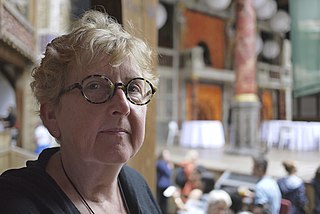A Quote by Ralph Fletcher
If you want to write poetry, you must have poems that deeply move you. Poems you can't live without. I think of a poem as the blood in a blood transfusion, given from the heart of the poet to the heart of the reader. Seek after poems that live inside you, poems that move through your veins.
Related Quotes
The judges who awarded the 1980 Commonwealth Poetry Prize to my first collection of poems, Crossing the Peninsula and Other Poems, cited with approval and with no apparent conscious irony my early poem, "No Alarms." The poem was composed probably sometime in 1974 or 1975, and it complained about the impossibility of writing poetry - of being a poet - under the conditions in which I was living then.
I think that the casual reader and the lyric and confession are trickily tied up together. I mean often when I read my students' poems my first impulse is to say, "O, the subject of this pronoun, this 'I,' is whatever kid wrote this poem." The audience for lyric poems is "confessionalized" to some extent. And I think this audience tends to find long narrative poems, for instance, kind of bewildering.
There is nothing “still” in the remarkably visceral poems of Alexander Long's third collection, Still Life, and nothing is at rest in these restless and edgy poems. Conversational and kinetic, these poems chart the traces left by the shifting overlays of the templates of literature, rock-and-roll, and contemporary culture. As each poem in Still Life attempts to fix a focus upon a scene or subject, the protean natures under view draw the poet into the eddies and complexities of reflection. This is a powerful and moving collection of poems.
I would read the Shel Silverstein poems, Dr. Seuss, and I noticed early on that poetry was something that just stuck in my head and I was replaying those rhymes and try to think of my own. In English, the only thing I wanted to do was poetry and all the other kids were like, "Oh, man. We have to write poems again?" and I would have a three-page long poem. I won a national poetry contest when I was in fourth grade for a poem called "Monster In My Closet.
I believe it's impossible to write good poetry without reading. Reading poetry goes straight to my psyche and makes me want to write. I meet the muse in the poems of others and invite her to my poems. I see over and over again, in different ways, what is possible, how the perimeters of poetry are expanding and making way for new forms.






































